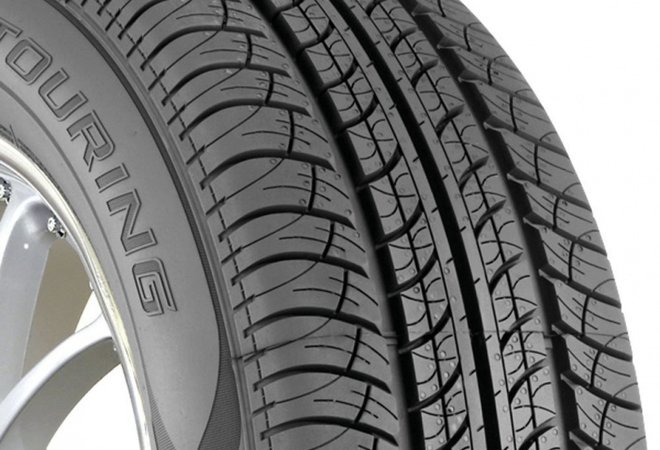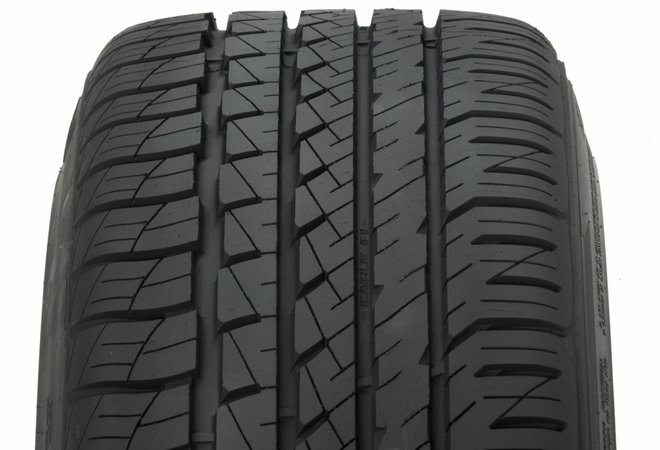The number of those who have the impression that if they buy mixed winter tires to come out cheaper is growing. But if the tires are mixed, that doesn't mean they are very good in both summer and winter. In fact, all-season tires are a compromise that is not good in the long run and that more and more manufacturers want to get rid of. About 10 major tire manufacturers have given up their dedicated ranges all year round, because there is no such tire safe enough in all conditions.
Mixed tires and operating temperature
All season tires are tires that behave decently in both winter and summer. But in terms of outside temperature, mixed tires behave better in summer. Because they are made from a composition much closer to that of summer gums. That is, when the temperature drops, the material of the tire will harden and the braking will not be as good. But these tires have other advantages in winter.
Profile of summer and ... snow
You will notice that the tread of a mixed tire is slightly different from a winter or summer tire. That is, it is divided into two: an area on a dry road and an area on a road covered with snow. If in terms of temperature, the engineers who contribute to the development of these tires have convinced us that it behaves better in summer, in terms of adhesion, mixed tires behave the same in summer, but also in winter, when there is snow or frost on the asphalt. Because all-season tires have such a profile, with large and pronounced rubber blocks, just to have grip on the snow. That is, the tire may not behave well in the winter on ice, being stiffer, or even on cold asphalt, but on snow, it will be much tighter than a simple summer tire.
Mixed tire life
Obviously, these tires are a compromise that can't work well for a long time. That is, you should not be surprised if such tires will last you a maximum of two years of continuous use. It is difficult for the material of which the tire is made to withstand -20 degrees, but also +50 degrees or more, the temperature reached by the road surface. This means that cracks will appear over time and the tread will wear out much faster than in the case of dedicated tires.
Fuel economy and rolling noise
We cannot say that we have reached a level where the tires make a difference in terms of fuel consumption. Especially in Romania, a country where the traffic is chaotic and no day is like the other. Maybe only in commercial vehicles, which make long routes, you can feel a difference in consumption due to the tires. But we can't talk about mixed tires. We could even say that, due to the more pronounced profile, such tires will increase the car's consumption. As for the rolling noise, they are noisier in summer, but much quieter in winter, compared to a set of tires dedicated to the cold season.
The price of mixed tires from the shelf
All season tires are neither cheaper nor more expensive than a regular summer or winter set. But if you think that with the same money you can drive when it snows and when it is sunny outside, you tend to put your hand in the fire that if you buy such tires you will make the best deal of the year. But you don't have to worry about the following: a set of mixed tires will only last you 2-3 years, while if you have two sets dedicated to each season, hot and cold, you will have tires for 5-6 years or even longer. a lot. So, you save money in the long run only if you have two sets of tires, one for winter and one for summer.
So, is it worth buying mixed tires?
All-season tires were born precisely for financial reasons. That is, to provide a solution accessible to drivers. But if it's about drivers who drive a lot every year, if you're a driver who travels tens of thousands of miles a year, you have nothing to do with such tires. Because in the end you will come out much more expensive. All season tires are good only for those cars that do not drive much, but with which they drive all year round. For example, if you have a weekend car, if you have a collection car, one for pleasure, but you do not want to leave it in the garage in winter but you want to enjoy it at the weekend, for such cases mixed tires are good. Because it is not justified to invest in two different sets of tires in the case of a car that travels 2000 kilometers per year. So, the conclusion is simple: if you drive every day, you have to have two individual sets of wheels if you want to be safe. If you have a car that you drive a little, you can also think of such mixed tires.








